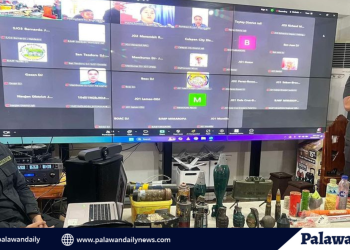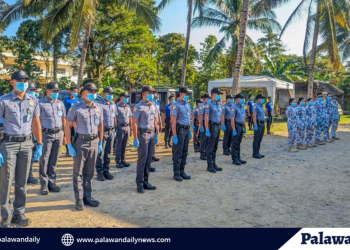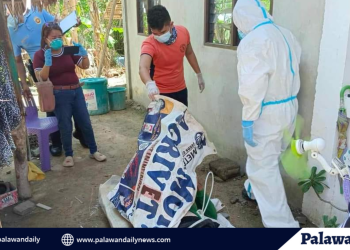Former Chief Justice Reynato S. Puno, Chairman of the Consultative Committee (ConCom) that reviewed the 1987 Constitution, served as the key resource person during the Forum on Federalism conducted by the MIMAROPA Regional Development Council (RDC) on August 01, 2018 at the La Breza Hotel, Quezon City.
NEDA Undersecretary for Regional Development Adoracion M. Navarro attended the forum as a reactor together with Governor Alfonso V. Umali, Jr. of Oriental Mindoro and Governor Eduardo C. Firmalo of Romblon.
Also in attendance were Governor Carmencita O. Reyes of Marinduque, Mayor Lucilo R. Bayron of Puerto Princesa City, Mayor Roberto M. Madla of Boac, Marinduque, Mayor Lucena D. Demaala of Narra, Palawan, regional directors of regional line agencies, presidents of state universities and colleges, and private sector representatives.
In his welcome remarks, RDC Vice Chairperson and NEDA MIMAROPA Regional Director Atty. Raul S. Anlocotan mentioned that the lack of comprehensive understanding on the concept of federalism resulted in uncertainty and resistance to change. He emphasized that the forum was conducted to inform the MIMAROPA stakeholders about federalism and other proposed changes in the constitution.
Former Chief Justice Puno asserted that the move towards federalism is for the benefit of the people in the regions. He said that through federalism, the local government units (LGUs) shall be endowed with political power and finances to govern themselves successfully. He presented the highlights of the design, structure, powers, and sources of funds of the federal government and the regional governments that are stipulated in the draft federal constitution.
He added that unlike other federated countries with a competitive type of federalism, the Philippines will have the ‘Bayanihan’ kind of federalism where the spirit of helping each other will prevail.
NEDA USec. Navarro assured everyone that the NEDA will support any undertaking that will empower the Filipinos to enjoy a ‘matatag, maginhawa at panatag na buhay.’ She shared that based on NEDA’s initial assessment, only three regions are ready for the proposed federalism structure, namely the National Capital Region, CALABARZON, and Davao Region. She emphasized the need to study further the draft federalism constitution and affirmed that NEDA supports the creation of a federal transition commission, through a law rather than an executive order since the undertaking involves all branches of government, to continue conducting a genuine and comprehensive evaluation of federalism.
Governor Umali expressed the concern of the Governors’ League regarding the qualification of the regions to be federated. He added that the charter change may just add another layer of bureaucracy, which will be more difficult for the LGUs in terms of management.
Governor Firmalo pointed matters on equity of resources, physical connectivity of regions, and readiness of people. He added the need to learn from the mistakes of other federated countries. Given that he used to be a practicing surgeon, he likened the shift to a federalism structure to a major surgery which needs to be backed by thorough research and study because mistakes can cost the patient’s life.
Other issues raised by the participants were about the economic feasibility of federalism, effect of federalism on basic education, achievement of financial autonomy, MIMAROPA’s readiness for the proposed federalism structure, and availability of materials on federalism for information dissemination and advocacy.
In closing, Atty. Anlocotan encouraged everyone to study the final draft submitted by the ConCom compared to the 1987 constitution to know how the shift to a federal form of government will affect the regions, particularly MIMAROPA.

















Discussion about this post